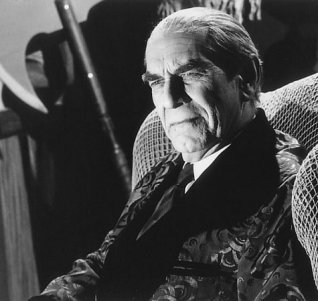The film represents the period in Edward Davis Wood, Jr.’s life when he made his best-known best-known films as well as his relationship with actor Béla Lugosi.
I will not retell the plot of this film, because everyone can watch the film or read it in the internet.
From the one hand, Ed Wood is a great man. His positive thinking is something inspirational for every human being including myself. However, “Tim Burton decided not to depict the darker side of Wood's life because his letters never alluded to this aspect and remained upbeat.”
I liked his possession for filmmaking even if his films were not good. For me he looked like a young boy, who with eager and interest was building a dream castle from cubes.
However, on the second hand his delusional way of thinking that he is making great films is a disaster for many people. Ed Wood was harmless, a bit childlike, so I think this two characteristic could be together. But there are people like Uwe Boll who spoiled many good ideas with his film interpretations. We must judge objectively our works and not to be delusional. I had a group mate with this kind of problem, I know, that everyone understands what I am talking about.
The story of Béla Lugosi is also interesting. Many people run from problems using drugs. People who get used to success after many failures start abusing drugs. I think everyone should avoid this, there are good things in this world apart being famous etc.
Overall, I liked the film. There are many good things to pick up from Wood’s life.








